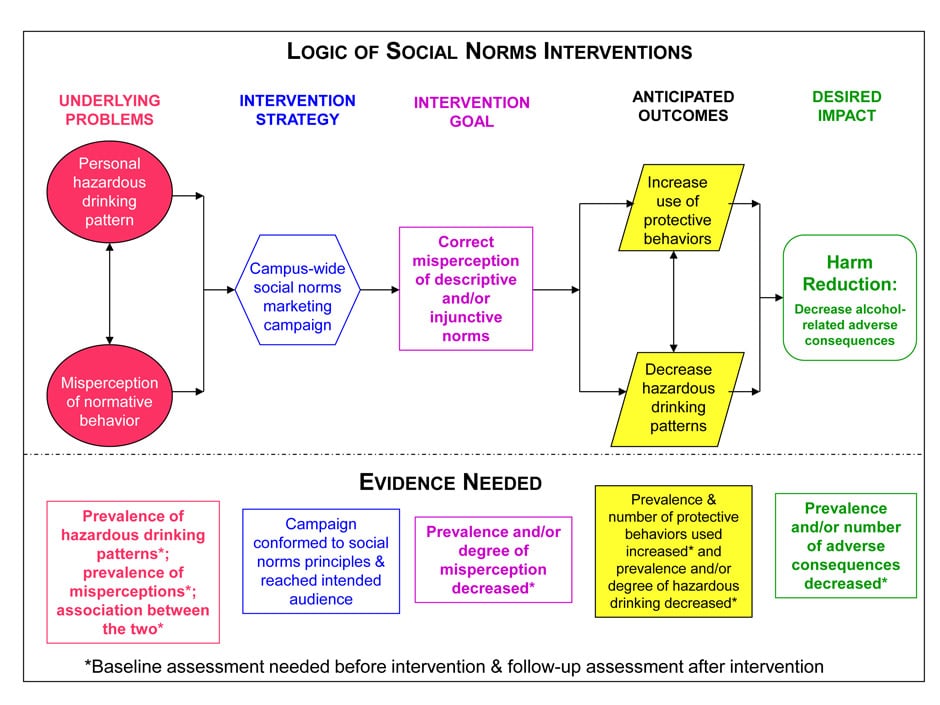Imagine walking into a crowded restaurant for a fancy dinner. Everyone seems to know exactly what to do: they wait patiently to be seated, they hold the door open for others, and they use their utensils with confidence. But then, you arrive at the table and discover a fork is missing. Do you quietly ask for another one or do you politely point out the missing utensil to the waiter? This seemingly small scenario demonstrates the power of societal norms – those unwritten rules and expectations that guide our behavior in various social settings.

Image: guideinc.org
Societal norms are like the invisible thread that weaves together individuals into a functioning society. They create a sense of order, predictability, and belonging. However, these norms are constantly evolving, influenced by cultural shifts, technological advancements, and the changing dynamics of our world. It’s imperative to stay informed and understand the current landscape of societal norms to navigate modern life with grace and confidence.
Understanding Societal Norms: A Deeper Dive
Societal norms are often described as social constructs, meaning they are not inherently true or natural but rather agreed-upon expectations that emerge from shared beliefs, values, and traditions. They’re like the unspoken language of a culture, guiding how we interact with each other and defining what is considered appropriate behavior in specific situations. These norms can encompass everything from simple greetings to complex rituals, from fashion choices to acceptable communication styles.
Understanding societal norms is crucial for social cohesion and successful interpersonal interactions. When we follow norms, we demonstrate that we understand and respect the unspoken rules of our social environment. This fosters trust, facilitates cooperation, and promotes a sense of belonging within a community. However, it’s important to remember that “normal” is a relative concept that varies significantly across cultures, demographics, and even subcultures. What might be considered polite in one society could be considered rude or offensive in another. This highlights the importance of being mindful and respectful of diverse cultural perspectives.
Types of Societal Norms: A Framework for Understanding
To better comprehend the multifaceted nature of societal norms, it’s helpful to categorize them into distinct types. These categories can provide a framework for analyzing and understanding the different ways norms shape our daily interactions.
1. Folkways
Folkways are the most informal and flexible type of societal norms. They represent customary practices and traditions that are generally accepted but not strictly enforced. Examples include saying “please” and “thank you,” holding the door for someone, or not interrupting someone while they are speaking. Violations of folkways typically carry minimal consequences, such as a raised eyebrow or a mild social disapproval.

Image: www.coursera.org
2. Mores
Mores are considered more important than folkways and often reflect the core values of a society. They deal with matters of morality and ethical behavior. Violations of mores are typically perceived as more serious and can result in social sanctions, such as ostracism, disapproval, or even legal consequences. Examples include not stealing, cheating, or harming others.
3. Laws
Laws are the most formalized and codified type of societal norm. They represent the formal rules and regulations imposed by a governing body, backed by enforcement mechanisms such as fines, imprisonment, or other penalties. Laws are designed to protect the rights and safety of citizens, promote order, and ensure justice within a society.
4. Taboos
Taboos represent actions or behaviors that are strictly forbidden and considered highly offensive or even sacred within a society. They carry the most severe social sanctions, including ostracism, shame, and sometimes even death. Examples of taboos can vary significantly between cultures and include things like incest, cannibalism, or blasphemy.
Evolution of Societal Norms: A Constant State of Flux
The world is constantly changing with technological advancements, global communication, and increasing cultural exchange. As a result, societal norms are also in a constant state of evolution. Traditions are being revisited, new technologies are reshaping social interactions, and cultural boundaries are increasingly blurred.
For example, the emergence of social media platforms has dramatically altered how we communicate, share information, and interact with others. New norms have evolved around online etiquette, digital privacy, and the appropriate use of social media. Similarly, the rise of diversity and inclusivity movements has brought about a shift towards more inclusive language, greater acceptance of diverse identities, and a greater awareness of social justice issues.
Navigating the Shifting Landscape of Societal Norms: Expert Tips
Given the dynamic nature of societal norms, it’s crucial to be aware of the latest trends and to adapt your behavior accordingly. Here are some tips for navigating the shifting landscape of social expectations.
- Stay Informed: Keep up with current events, social trends, and cultural dynamics. Pay attention to the news, engage in conversation, and be open to learning new perspectives.
- Be Observant: Pay attention to how others behave in various social settings. Observe their language, mannerisms, and actions to gain insights into the prevailing norms.
- Ask When Unsure: Don’t be afraid to ask questions if you are unsure about a particular norm or social expectation. It’s better to inquire than to make a faux pas.
- Be Respectful: Remember that societal norms reflect the values and beliefs of a community. Be respectful of these values, even if you don’t necessarily agree with them.
- Embrace Diversity: Recognize that social norms vary significantly across cultures and demographics. Be mindful of different perspectives and strive to communicate respectfully across diverse social groups.
Navigating the complex web of societal norms is an ongoing process that requires both awareness and adaptability. By staying informed, being observant, and approaching interactions with respect, you can gracefully navigate the evolving landscape of social expectations and foster meaningful connections with those around you.
FAQ: Understanding Societal Norms
Q: What are the main reasons for societal norms?
Societal norms serve several important functions: they promote social order, provide a sense of predictability, facilitate cooperation, and promote a sense of belonging within a community.
Q: Can societal norms be harmful?
Yes, societal norms can sometimes be harmful if they perpetuate discrimination, prejudice, or social inequalities. It’s important to be aware of the potential negative impacts of norms and to challenge those that promote injustice.
Q: How do I learn about societal norms in different cultures?
The best way to learn about societal norms in other cultures is through observation, interaction with locals, and research. Be open to learning about different customs, traditions, and values.
Q: What should I do if I accidentally violate a societal norm?
If you make a mistake, apologize sincerely and try to understand why your behavior was considered inappropriate. Most people are understanding when someone is making a genuine effort to adjust to new social situations.
List Of Societal Norms
Conclusion: Embrace the Navigational Journey
Navigating the complex web of societal norms is an ongoing journey that requires continuous learning and adaptation. By understanding the different types of norms, recognizing the cultural diversity that shapes them, and staying mindful of evolving social expectations, we can better understand and respect the unspoken rules that guide our interactions with others. So, the next time you find yourself in a social situation, remember the invisible threads that connect us all and strive to interact with grace, respect, and understanding.
Are you fascinated by the intricacies of societal norms and the ways they shape our lives? Let us know in the comments below!






